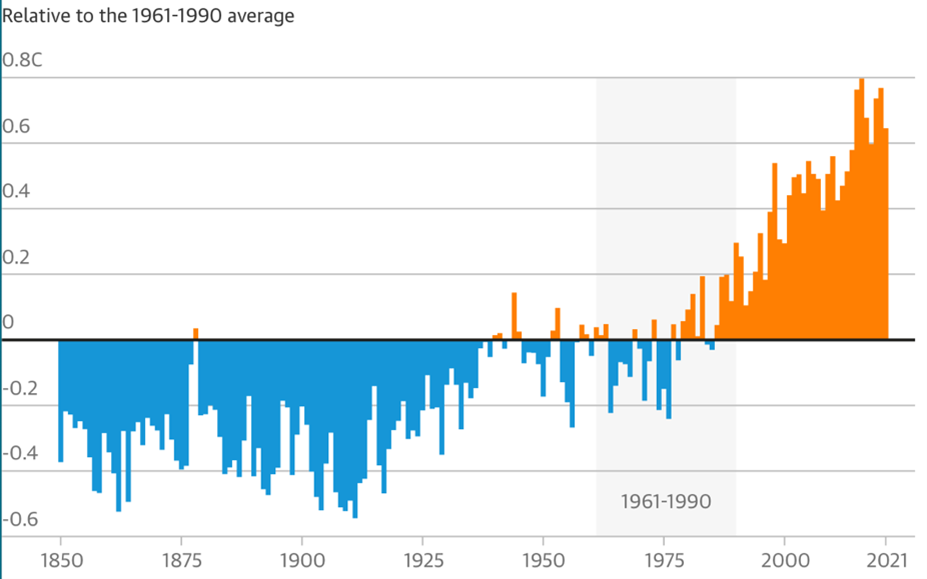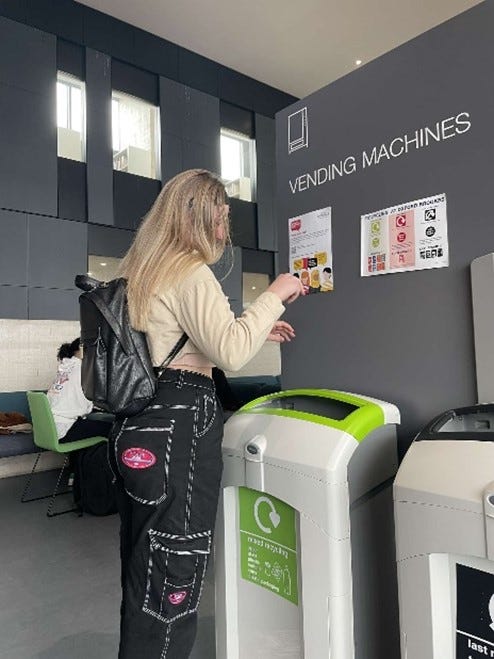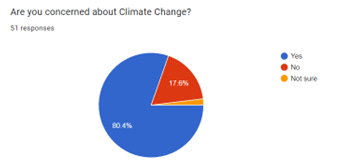Study, Sustain and Save the Planet: A Student's Guide to Going Green
We are calling all students! It is time to take matters into our own hands and combat the Climate Crisis ourselves.
Here is all the information you need to know, from the latest Climate news to how to become an eco-friendly student and how learning about Sustainability can create opportunities for your future.
Source: Unsplash
Now or Never
Climate Change has been an issue for as long as most of us can remember, but why is it so important to take action now than ever before?
On the 20th of March, the Chair of the Intergovernmental Panel on Climate Change (IPCC), Hoesung Lee, stated in the IPCC press release that “mainstreaming effective and equitable climate action will not only reduce losses and damages for nature and people, it will also provide wider benefits. This Synthesis Report underscores the urgency of taking more ambitious action and shows that, if we act now, we can still secure a liveable, sustainable future for all.”
The IPCC’s Synthesis Report emphasises how we need to take action now as greenhouse gases continue to rise, pushing the world to the brink of irreversible damage.
According to the IPCC, more than 3 billion people currently reside in “highly vulnerable “ regions to climate change. Half of the world's population now faces severe water scarcity for at least some of the year. The researchers cautioned that in many places, we have already reached the point where we cannot adjust to such drastic changes and that weather extremes across Africa, Asia, North, Central, and South America, as well as the South Pacific, are increasingly pushing displacement.
Source: Guardian Graphic, Met Office
The Student/Eco-friendly Lifestyle
With scientists issuing a “final warning”, according to the IPCC’s Synthesis Report, what can we do as individuals to do our bit to support the environment? Here are some student-friendly suggestions:
Food
A change in diet would be beneficial for lowering greenhouse gases because agriculture accounts for over a quarter of all greenhouse gases. This article makes the following recommendations:
· Cheaper meat substitutes that are high in protein, for example, chickpeas.
· Long-lasting dairy alternatives like oat milk.
· Preparing meals together with friends to cut down on waste.
Fashion
Plastic fibres are causing pollution in the oceans, wastewater, poisonous dyes, and the underpayment of labour. Although the environmental costs of fast fashion are increasing, scientists argue there is another way: a circular economy for textiles. Here are some cheap and efficient suggestions
· Second-hand clothes, i.e., Depop or Vinted
· Charity Shopping and donating old clothes
· Conducting background research on the Sustainability of the brand
· Clothes share, either with friends or online
Transport
Walking or cycling are ways in which a student can also implement more exercise into their daily routine, as well as being more eco-friendly. Taking public transport, such as buses and trains, also helps reduce CO2 emissions and is a better alternative to using a car.
Using Available Resources on University Campuses
· Correct use of Recycling bins
· Water fountains
· Sustainable food available on campus
Source: Charlotte Rice, Oxford Brookes University
Everyday Life
The cost-of-living crisis has caused people to become more aware of their energy usage. For students on a budget, it is hugely important to find ways in which to conserve energy. This could include using the eco setting on your washing machine or dishwasher and being conscious of heating use.
Joining in
Most universities provide ample opportunities for you to get involved with combatting the Climate Crisis. Whether it is joining a society or being part of a campaign supporting the environment.
In a questionnaire distributed amongst Oxford Brookes students, in which there were 58 responses, students were asked a variety of questions about Climate Change. The survey results showed that although 80.4% of students are concerned about climate change, only some are aware of the opportunities Oxford Brookes offers to address the issue.
From this data, we can see how important it is to encourage students to become more involved with supporting the environment. Whether it is a case of creating more opportunities for students at university or just marketing them better indicates how significant it is to pay more attention to student involvement in supporting the environment.
Sustainable Opportunities
Sustainability is slowly becoming integrated into companies and businesses, creating more job opportunities for the foreseeable future. An online resource called Voiz Academy offers education and training on net-zero, sustainability, and climate action. Voiz stands for Voices of Gen Z and is a new organisation founded in 2020 by Diego Espinosa and Yvonne Espinosa.
In an interview with the Director of Voiz Academy’s ESG Programs, Ben Hillier states that Voiz Academy is “a mission-allied company that creates training programs, specifically for young people to learn about environmental issues. But more specifically, it’s about them gaining skills that will help them land jobs in the climate and space and excel in those jobs.”
Ben Hillier also indicates that the “main reason why it’s incredibly important for students is because we are in a very interesting kind of generational situation whereby, we’re probably the only generation that really is facing the kind of cross point where we have to live through all of the climate issues that have been created by generations before us.”
Organisations and platforms such as these create job opportunities for young people, which could encourage students to become more interested in the environment. Voiz Academy indicates on their website the importance of inspiring the younger generation to become more conscious of the Climate Crisis and how they can support it whilst simultaneously helping themselves and forming successful futures.










